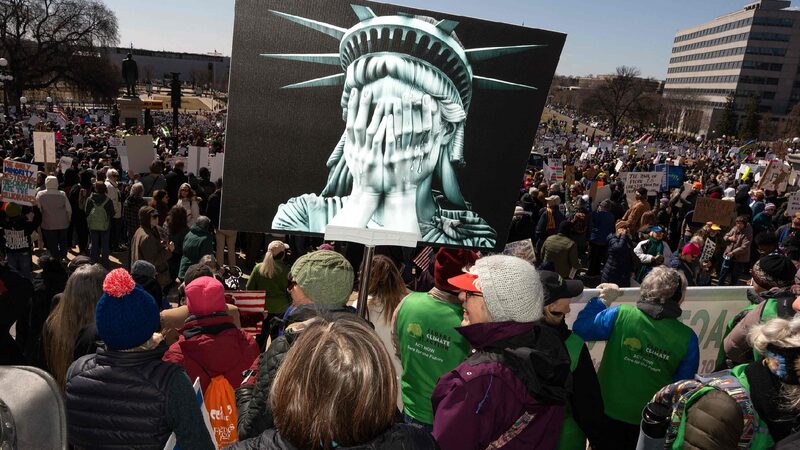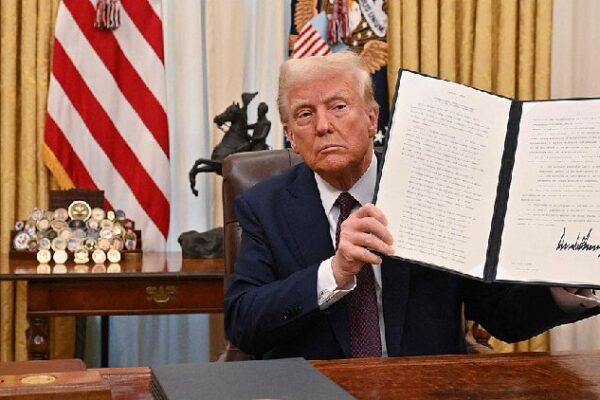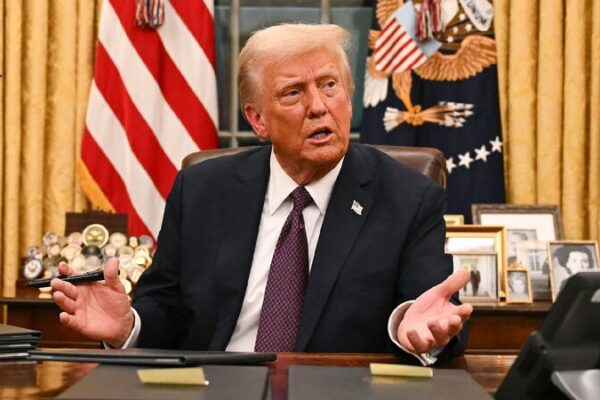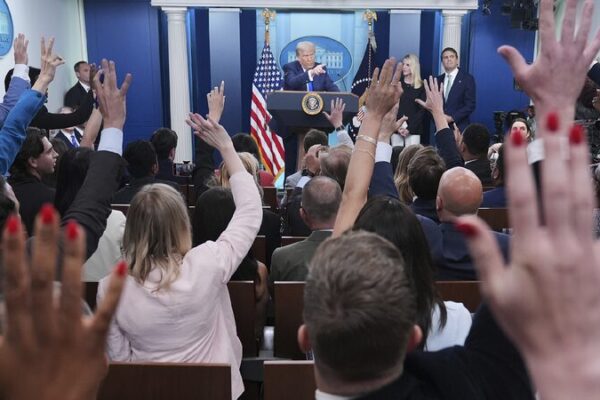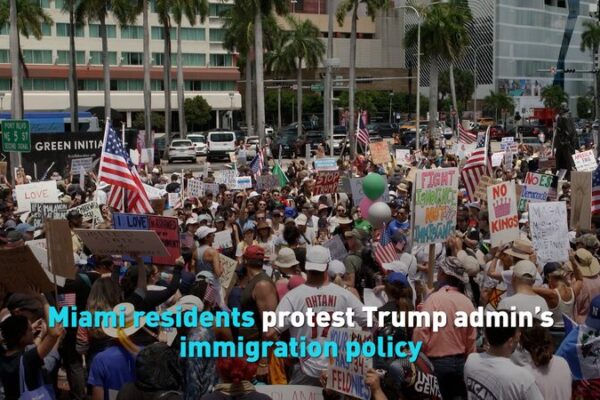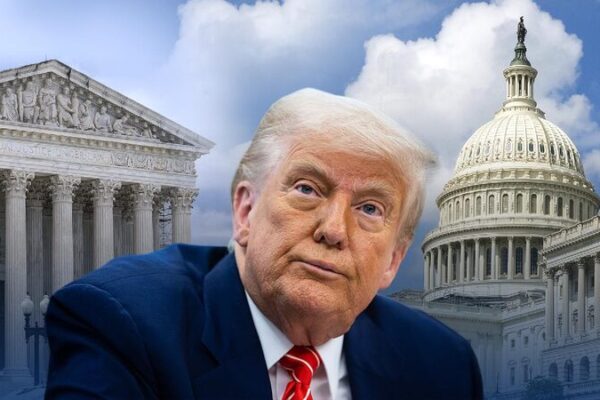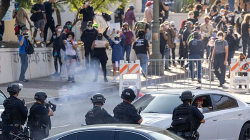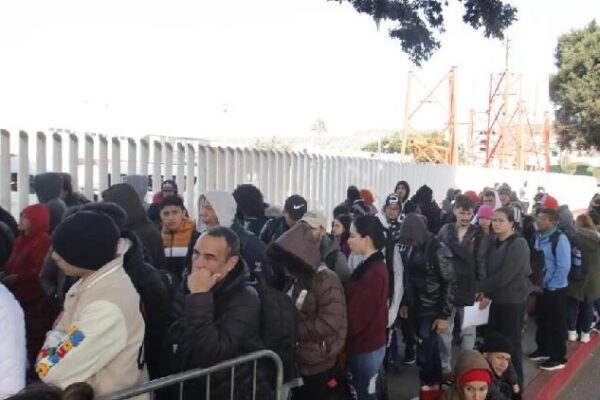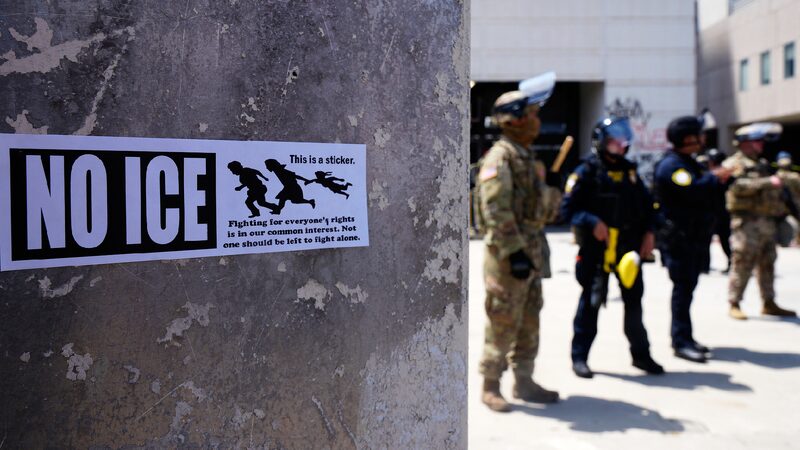Since the start of the year, a wave of new executive orders from Washington has sent shockwaves through immigrant communities in the United States. Measures like deploying troops to the southern border, challenging birthright citizenship and refugee status, and investigating sanctuary cities have placed immigration at the forefront of national debates, often overshadowing economic issues.
“The fear infects everything,” said Bishop Matthew Heyd of New York. Local immigrants “are worried about being out in public, even doing basic things like going to the supermarket,” he added.
Carina Kaufman-Gutierrez, deputy director of the Street Vendor Project, warned, “The people who are up at 4 a.m. driving deliveries—those are the people who run this city and are being served up on a silver platter for President Trump.” The Street Vendor Project advocates for the rights and interests of street vendors, many of whom are immigrants.
The contrast between immigration policies under different administrations highlights an ideological divide within the country. Beyond domestic consequences, these shifting policies are attracting global attention. People are questioning whether the U.S. can live up to its claim of being a beacon of democracy and inclusiveness.
While America prides itself on democracy, cultural diversity, and human rights, the struggle over who belongs has persisted for centuries. Previous administrations have generally supported more inclusive immigration policies than those proposed by U.S. President Donald Trump. However, the lack of a comprehensive strategy that balances security concerns with the need for orderly immigration has strained the system. Asylum hearings can be backlogged for over four years, and enforcement agencies are overwhelmed. Smuggling networks exploit these gaps, worsening the crisis.
In the aftermath of the COVID-19 pandemic, with economic stagnation, a challenging job market, and rising inflation, immigration has become an even more pressing concern for American voters. Some politicians have intensified their rhetoric, linking immigrants to crime, job losses, and economic struggles. The use of offshore detention facilities, including the controversial Guantanamo Bay military base, has sparked outcry from human rights advocates.
Mass deportations have led to humanitarian concerns, prompting responses from affected nations. Guatemala is preparing for an influx of deportees, Mexico is enhancing legal aid services for its nationals in the U.S., and Brazil has condemned the U.S. for deporting its citizens in handcuffs, calling it a “flagrant disregard” for their rights. Colombia has offered to cover the costs of the dignified repatriation of its citizens after tensions with U.S. leadership.
The shifting U.S. immigration policies have created widespread uncertainty, leaving immigrants in fear. As a nation that often critiques other countries on human rights and inclusiveness, these actions raise questions about its own record.
If the U.S. continues to scapegoat immigrants without pursuing stable and sustainable solutions, it risks weakening its moral authority globally, exacerbating domestic social tensions, and harming its own economic development and national security.
In a globalized world, immigration policies have far-reaching consequences. Nations that implement consistent, flexible, and humane immigration policies can gain advantages in globalization. A well-balanced immigration strategy not only serves national interests but also sets a model for global immigration governance. The U.S. should consider adopting a more stable and humane approach that aligns with the values it espouses.
Reference(s):
cgtn.com
